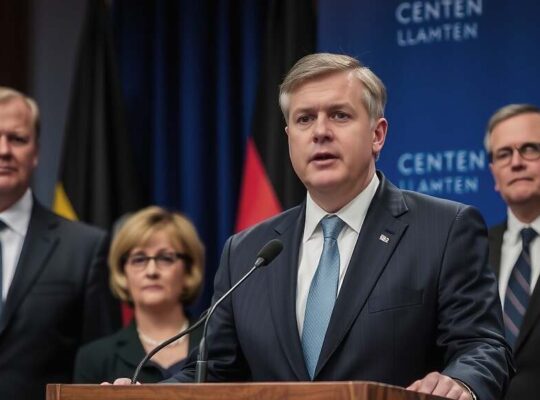The appointment of Evelyn Palla as CEO of Deutsche Bahn (DB) and Philipp Nagl as head of DB InfraGo has been hailed by former Austrian Chancellor and ex-ÖBB CEO Christian Kern as a significant validation of his leadership approach, sparking renewed scrutiny of the German rail giant’s systemic challenges. Kern, speaking to the Süddeutsche Zeitung, framed the selections as a testament to the talent fostered during his tenure at Austrian Federal Railways, having recruited Palla in 2011. He described Palla as an “excellent businessperson” known for her structured, analytical and fiscally disciplined management style.
However, Kern’s praise is intertwined with a stark assessment of the difficulties facing Deutsche Bahn. He admitted to being approached as a potential successor to former DB CEO Richard Lutz, but ultimately declined, implicitly acknowledging a reluctance to inherit what he now characterizes as an essentially Sisyphean task. “You feel like Sisyphos, trying to roll the stone to the summit” he stated, highlighting the deep-seated hurdles hindering the company’s progress.
Kern pointed to a complex web of conflicting interests – encompassing shareholders, powerful labor unions and layers of management – as a primary obstacle. “There’s no vision picture that everyone would sign” he explained, suggesting a lack of unified strategic direction. He further criticized the company’s excessive organizational complexity and a relentlessly obstructive political environment. The sheer volume of mandatory construction projects and resulting detours, he argues, impose crippling additional costs, making effective operation, particularly in long-distance and freight transport, nearly impossible. “If they want to operate under these conditions, you could exhume Steve Jobs and nothing will get better.
The appointments of Palla and Nagl, viewed positively by Kern, also subtly expose a pattern of Deutsche Bahn’s reliance on external talent – specifically individuals shaped by a more rigorous, arguably Austrian, operational style – to attempt to address its endemic problems. The implicit criticism of the company’s internal decision-making processes and the potentially brutal political constraints raise questions about the long-term viability of any reform efforts and the extent to which even the most capable leadership can overcome such deeply entrenched systemic failures.












